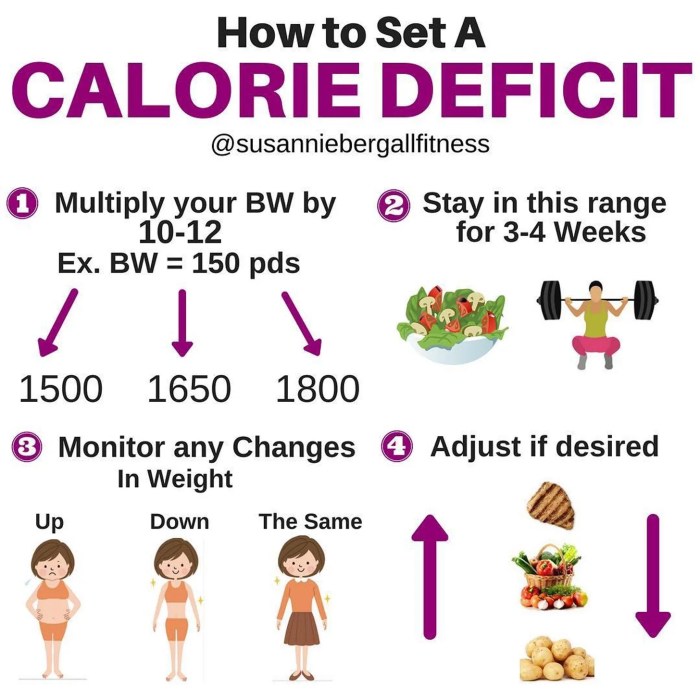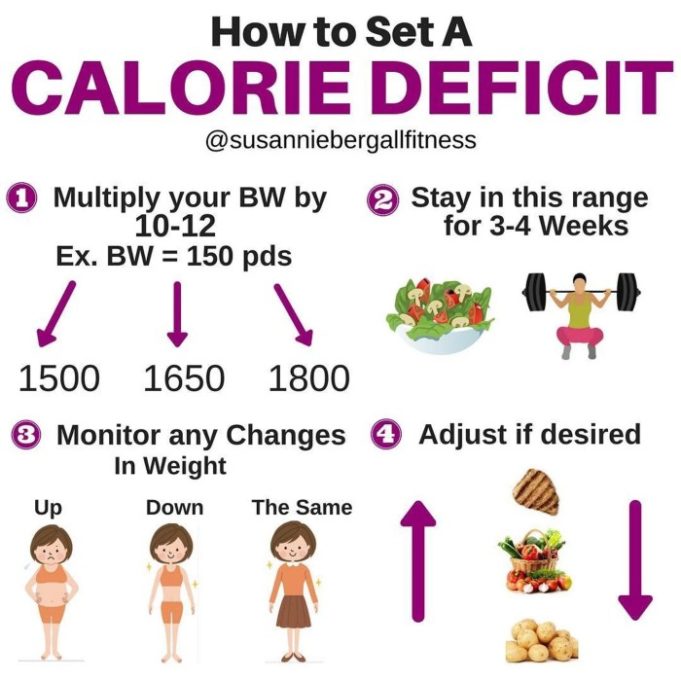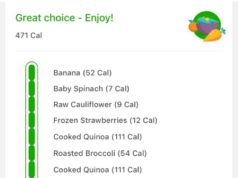Free dieting calculators have become increasingly popular as individuals seek to manage their weight and improve their overall health. These online tools provide a convenient and accessible way to estimate calorie needs, track macronutrients, and calculate body mass index (BMI). By leveraging the power of data and algorithms, free dieting calculators empower users to make informed decisions about their dietary choices and embark on a personalized journey towards their health goals.
These calculators offer a range of features, including calorie tracking, macro breakdowns, meal planning suggestions, and progress tracking. Some even integrate with fitness trackers and other health apps, providing a comprehensive view of your overall well-being. By understanding your individual needs and goals, free dieting calculators can help you create a sustainable and effective diet plan that aligns with your lifestyle.
Introduction to Free Dieting Calculators
Free dieting calculators are online tools that help you track your diet and make informed decisions about your food choices. They provide valuable insights into your calorie intake, macronutrient breakdown, and overall dietary needs. These calculators can be incredibly useful for weight management, health goals, and overall well-being.
Types of Free Dieting Calculators
Free dieting calculators come in various forms, each serving a specific purpose. Here are some of the most common types:
- Calorie Calculators: These calculators estimate your daily calorie needs based on factors such as your age, sex, height, weight, and activity level. They help you understand how many calories you need to consume to maintain your current weight, lose weight, or gain weight.
- Macro Calculators: These calculators break down your daily calorie needs into the three macronutrients: carbohydrates, protein, and fat. They provide a personalized ratio of these macronutrients based on your goals, such as building muscle, losing fat, or improving athletic performance.
- BMI Calculators: Body Mass Index (BMI) is a measure of body fat based on your height and weight. BMI calculators determine your BMI and categorize it as underweight, normal weight, overweight, or obese. This information can help you assess your weight status and identify potential health risks.
Benefits of Using Free Dieting Calculators
Using free dieting calculators offers several benefits for weight management and overall health:
- Personalized Guidance: Free dieting calculators provide personalized recommendations based on your unique characteristics, making them more effective than generic diet plans.
- Increased Awareness: These calculators help you become more aware of your dietary habits, calorie intake, and macronutrient breakdown, promoting conscious food choices.
- Improved Weight Management: By tracking your calorie intake and macronutrient ratios, free dieting calculators can help you manage your weight effectively and achieve your weight loss or weight gain goals.
- Enhanced Health: Understanding your dietary needs and making informed food choices can contribute to better overall health, reducing the risk of chronic diseases such as heart disease, diabetes, and certain types of cancer.
- Convenient and Accessible: Free dieting calculators are readily available online, making them convenient and accessible to anyone with an internet connection.
Key Features of Free Dieting Calculators

Free dieting calculators are valuable tools for individuals seeking to manage their weight and improve their overall health. They offer a range of features designed to provide personalized guidance and support throughout the dieting journey.
These calculators are designed to simplify the process of creating a personalized diet plan and tracking progress. By providing accurate information and insights, they empower individuals to make informed decisions about their dietary choices.
Calculating Calorie Needs
Calorie needs vary based on factors such as age, gender, activity level, and body composition. Free dieting calculators utilize formulas to estimate an individual’s daily calorie requirement, which is essential for weight management.
The Harris-Benedict equation is a commonly used formula to calculate basal metabolic rate (BMR), which represents the calories burned at rest.
Macro Breakdown
Free dieting calculators often provide a breakdown of macronutrients (carbohydrates, proteins, and fats) based on individual needs. This information helps users understand the optimal proportions of each macronutrient for their goals, whether it’s weight loss, weight gain, or maintenance.
For example, a calculator might suggest a macronutrient breakdown of 40% carbohydrates, 30% protein, and 30% fat for someone aiming for weight loss.
Food Tracking
Many free dieting calculators include food tracking features that allow users to log their daily meals and snacks. This feature helps monitor calorie intake, macronutrient distribution, and identify areas for improvement.
Progress Tracking
Free dieting calculators often provide tools to track weight, body mass index (BMI), and other relevant metrics over time. This allows users to visualize their progress, identify trends, and adjust their diet plan accordingly.
For instance, a user might track their weight weekly and notice a steady decline, indicating successful weight loss.
Personalized Diet Plans
Based on the information provided, some free dieting calculators generate personalized diet plans tailored to individual needs and goals. These plans may include meal suggestions, recipes, and tips for healthy eating.
For example, a calculator might recommend a meal plan consisting of lean protein, whole grains, and plenty of fruits and vegetables for a user aiming for weight loss.
Accuracy and Reliability
It is crucial to choose free dieting calculators from reputable sources that use accurate formulas and algorithms. While free calculators can be helpful, they should not be considered a substitute for professional advice from a registered dietitian or healthcare provider.
How to Choose the Right Free Dieting Calculator
Finding the right free dieting calculator can be a game-changer for your weight loss journey. With so many options available, it’s essential to carefully consider your individual needs and goals before making a choice.
Factors to Consider When Choosing a Free Dieting Calculator
Choosing a free dieting calculator that suits your individual needs is crucial for achieving your weight loss goals. Here are some factors to consider:
- User Interface: A user-friendly interface is essential for a smooth and enjoyable experience. Look for a calculator with a clean layout, intuitive navigation, and easy-to-understand features.
- Data Privacy: Ensure the calculator you choose protects your personal information. Look for a platform with a clear privacy policy and strong security measures.
- Integration with Other Apps: If you use other health and fitness apps, consider a calculator that integrates seamlessly with them. This allows you to track your progress in one central location.
- Features: Different calculators offer various features. Consider your needs and choose one that provides the functionalities you require. For example, some calculators offer meal planning, calorie tracking, macronutrient tracking, and exercise logging.
- Accuracy: Ensure the calculator uses reliable formulas and data to provide accurate calculations. Check for reviews and compare the calculator’s results with other sources.
- Support: Look for a calculator that offers support resources, such as FAQs, tutorials, or customer service. This can be helpful if you encounter any issues or have questions.
Reputable and User-Friendly Free Dieting Calculators
Here are some reputable and user-friendly free dieting calculators that are worth considering:
- MyFitnessPal: This popular app offers calorie tracking, macronutrient tracking, and meal planning. It also integrates with other fitness apps and has a large food database.
- Lose It!: This app focuses on calorie tracking and provides personalized weight loss plans. It also offers a social component that allows you to connect with other users.
- SparkPeople: This website and app provide a comprehensive suite of tools for weight loss, including calorie tracking, recipes, and exercise plans. It also offers a community forum for support and motivation.
- Cronometer: This app offers detailed macronutrient tracking, along with food analysis and personalized reports. It’s a good choice for users who want to focus on their nutritional intake.
Using Free Dieting Calculators Effectively
Free dieting calculators can be powerful tools for weight management, but their effectiveness depends on how you use them. To get the most out of these calculators, it’s crucial to understand how to input accurate information, interpret the results, and adjust your diet plan based on your progress.
Inputting Accurate Information
Accurate input is the foundation of effective use. You need to be honest and precise when providing information to the calculator. This includes:
- Your current weight: Use a reliable scale to get the most accurate reading.
- Your height: Measure yourself accurately using a tape measure.
- Your age: Provide your exact age for accurate calculations.
- Your activity level: Be honest about how active you are. The calculator typically offers options like sedentary, lightly active, moderately active, and very active. Choose the option that best reflects your lifestyle.
- Your goals: Set realistic goals for weight loss or gain. Aim for a gradual and sustainable rate of change. For example, a healthy weight loss goal is 1-2 pounds per week.
Interpreting the Results
Once you input your information, the calculator will provide you with estimated calorie requirements and macronutrient ratios.
- Calorie requirements: This is the number of calories you need to consume daily to maintain your current weight. You can adjust this number to achieve your weight loss or gain goals. For example, if you want to lose weight, you’ll need to consume fewer calories than your maintenance requirement.
- Macronutrient ratios: This refers to the breakdown of your daily calories into protein, carbohydrates, and fats. The calculator will typically provide a recommended ratio based on your goals and activity level.
Tracking Progress and Making Adjustments
Using a free dieting calculator effectively means regularly tracking your progress and making adjustments as needed.
- Track your weight: Weigh yourself regularly, ideally at the same time each day, to monitor your progress.
- Track your food intake: Use a food journal or a calorie-tracking app to keep track of what you eat. This will help you understand your eating habits and make necessary adjustments.
- Adjust your diet plan: If you’re not seeing the results you want, you may need to adjust your calorie intake or macronutrient ratios. For example, if you’re not losing weight, you may need to reduce your calorie intake or increase your activity level.
Limitations of Free Dieting Calculators
While free dieting calculators can be helpful tools for managing your weight, it’s important to be aware of their limitations. They cannot provide personalized advice or account for all the unique factors that influence your health and weight.
Inaccurate Results
Free dieting calculators often rely on general formulas and averages, which may not accurately reflect your individual needs. Factors such as age, sex, activity level, medical history, and genetics can significantly impact your calorie and macronutrient requirements. Using a calculator without considering these factors can lead to inaccurate results and potentially ineffective or even harmful dieting strategies.
- For example, a free calculator might estimate that a sedentary 30-year-old woman needs 1,800 calories per day, but her actual needs could be significantly higher or lower depending on her individual metabolism, body composition, and medical history.
Lack of Personalized Guidance, Free dieting calculator
Free dieting calculators cannot provide the personalized guidance that a registered dietitian or other healthcare professional can offer. They cannot assess your individual health status, dietary needs, or potential risks associated with specific diets.
- For instance, a free calculator might recommend a low-carb diet, but this could be inappropriate for someone with certain medical conditions like kidney disease or diabetes.
Potential for Unhealthy Dieting Practices
Free dieting calculators may encourage restrictive or unsustainable diets that can be harmful to your health. Some calculators might recommend extremely low calorie intakes or eliminate entire food groups, which can lead to nutrient deficiencies, disordered eating, and other health problems.
- For example, a free calculator might suggest a very low-calorie diet for rapid weight loss, but this could lead to muscle loss, fatigue, and other negative side effects.
Free Dieting Calculators and Healthy Lifestyle
Free dieting calculators can be a valuable tool for promoting a healthy lifestyle by providing personalized insights into your dietary needs and helping you make informed decisions about your food choices. However, it’s crucial to understand that these calculators are just one piece of the puzzle.
Combining Dietary Changes with Physical Activity
Adopting a healthy lifestyle requires a holistic approach that goes beyond just adjusting your diet. Regular physical activity is equally important for maintaining a healthy weight, reducing the risk of chronic diseases, and improving overall well-being.
- Aim for at least 150 minutes of moderate-intensity aerobic activity or 75 minutes of vigorous-intensity aerobic activity per week, along with muscle-strengthening activities at least twice a week.
- Find activities you enjoy to make it easier to stick with your fitness goals. This could include walking, jogging, swimming, dancing, or team sports.
Maintaining a Balanced Diet
Free dieting calculators can help you determine your calorie and macronutrient needs, but it’s essential to ensure your diet is balanced and includes all the essential nutrients your body requires.
- Focus on consuming a variety of fruits, vegetables, whole grains, lean proteins, and healthy fats.
- Limit processed foods, sugary drinks, and unhealthy fats.
- Stay hydrated by drinking plenty of water throughout the day.
Achieving Long-Term Health Goals
While free dieting calculators can be a helpful starting point, it’s essential to adopt sustainable habits for long-term success.
- Make gradual changes to your diet and exercise routine to avoid feeling overwhelmed and discouraged.
- Set realistic goals that are achievable and track your progress regularly to stay motivated.
- Seek support from a registered dietitian or a certified personal trainer for personalized guidance and accountability.
End of Discussion
While free dieting calculators can be valuable tools for weight management and healthy eating, it’s essential to remember that they are not a substitute for professional medical advice. Consulting a registered dietitian or healthcare professional is crucial for personalized guidance and monitoring, especially if you have underlying health conditions or specific dietary requirements. By utilizing free dieting calculators in conjunction with professional expertise, you can make informed decisions about your diet and embark on a journey towards a healthier and more fulfilling life.
Essential FAQs: Free Dieting Calculator
Are free dieting calculators accurate?
The accuracy of free dieting calculators can vary depending on the algorithm used and the quality of the information you provide. It’s important to use reputable calculators and double-check the results with a healthcare professional.
Do free dieting calculators work for everyone?
Free dieting calculators can be a helpful tool for many individuals, but they may not be suitable for everyone. If you have specific dietary needs or medical conditions, consult with a healthcare professional before relying solely on a free calculator.
How often should I use a free dieting calculator?
The frequency of use depends on your individual goals and preferences. Some people use calculators daily to track their progress, while others use them less frequently to monitor their overall calorie intake or macro ratios.
A free dieting calculator can help you determine your calorie needs and track your progress, but it’s just one piece of the puzzle. To find a diet that works for you, consider exploring different popular diet plans like keto, Mediterranean, or intermittent fasting.
Once you’ve chosen a plan, a free dieting calculator can be a valuable tool to stay on track and monitor your results.
A free dieting calculator can help you determine your daily calorie needs, but it doesn’t provide specific meal plans. For inspiration, check out these ideas for diet meals , which can be incorporated into your personalized plan. Once you have a good grasp of your calorie goals and some delicious meal options, you can utilize the calculator to track your progress and stay on track.
Free dieting calculators are great tools for getting a basic understanding of your calorie needs and tracking your progress. However, they can’t tell you everything about healthy eating. For example, you might be curious about the “diet of worms,” a fascinating concept that involves consuming a diet primarily consisting of worms.
To learn more about this intriguing dietary approach, you can visit what is diet of worms. While it’s important to be cautious about adopting extreme diets, it’s always good to explore different approaches to healthy living. Ultimately, the best diet for you will depend on your individual needs and preferences, and a free dieting calculator can be a helpful starting point.
























